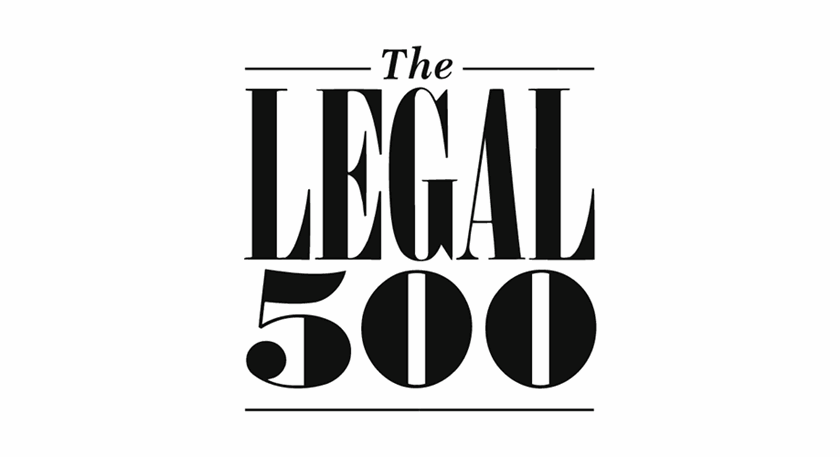Buying or selling a school: where to begin?
Insight

Introduction
The last few years have reflected a strong period for M&A in the education sector as a whole. This includes not just schools but also nurseries, higher education establishments and education and training based businesses. The transactions we have advised on include sales to private equity buyers, who continue to see education as a strong investment in an uncertain market, and also private sales between schools, charitable and non-charitable, as well as school mergers. Such transactions can offer the opportunity to consolidate, expand or to raise funds for investment elsewhere, and can therefore be beneficial and secure the longer-term future of the school.
The current situation under Covid-19 is extremely challenging for schools and if this has led to, or exacerbated financial difficulties, a sale may be one of the options that a school will need to consider. Equally, this may bring opportunities for buyers.
In these circumstances, what do you need to be considering in the earliest stages? Before getting too far in the process we would advise you to pin down the answer to some fundamental questions: what is being sold, for what price and on what payment terms?
Confidentiality
We should start by highlighting the importance of confidentiality. A sale can be a very unsettling time for staff, parents and pupils - and it is probably worse where a transaction is proposed but does not proceed. It is therefore important that any process is carefully managed to ensure that even the fact that a sale is being considered is kept confidential to a small group of people. All parties will want to ensure that all interested persons are aware of the importance of confidentiality and that they sign up to robust non-disclosure agreements.
A particular challenge is that as part of the process the buyer will want to carry out due diligence, and this will generally involve the preparation of a data room containing information about all aspects of the school. It can be difficult to collate all this information without involving key employees to provide it, but those involved should be as limited as possible. In the current circumstances due diligence is likely to take a bit longer than usual and this should be factored into the timing.
The school and the buyer will agree the timing and terms of any announcement to parents and pupils and this will be an important factor in the timing, especially as it may revolve around the school term.
A merger as an alternative to sale?
An alternative to sale (particularly for charitable schools) is a merger with another charity (which may be a single school or a foundation operating a number of schools). A merger will share many features with an asset sale except for the fact that money does not usually change hands on a merger. There is no purchase, rather the transaction is essentially a gift from one party to another, with terms and conditions attached.
The continuing school also usually assumes all the liabilities of the charitable school, handing over its assets and its undertaking, which makes due diligence by the continuing school very important. The downside of a merger is that it can take longer to arrange than a sale. However, where a suitable charity can be identified as a merger partner, a merger will result in a charitable school continuing to be operated by a charity. In this article we focus principally on a sale and do not consider in any detail the different aspects which arise on a merger.
What is being sold?
A school is not in itself an identifiable legal asset. You will need to define exactly what will transfer from seller to buyer and the first question to ask is whether the sale will be of the company out of which the school is operated or of the assets which make up the school.
Charitable schools
The sale of a charitable school to a commercial company cannot be carried out as a company sale and generally occurs as an asset sale. Membership rights in a charity (akin to shares in a commercial company) do not confer any proprietary rights on the holder and the assets within the charity must be used exclusively for charitable purposes. As a result, a charitable company limited by guarantee cannot be sold outright, although its assets can be sold.
The sale of a school run by a charity must therefore proceed as an asset sale. Where the asset is sold to a commercial company, the market price must be paid. A sale (or merger) with another charity, where the charitable purposes of the buyer or merger partner align with the school, may be undertaken for nil consideration or below the market price, because that transfer will be a way of furthering the school’s charitable purposes, which gives the governors greater latitude in the terms of sale.
Proceeds from the sale of a school run by a charity must be used in accordance with the charity’s purposes. This may offer an opportunity for governors to make grants using any remaining monies after creditors have been paid, whether to support bursaries at other charitable schools or fund projects at maintained schools, although it will be important for governors to check that any proposed activities post-sale fall within the existing purposes.
Asset sale
An asset sale allows both seller and buyer to choose which assets will be included within the transaction. It is a common assumption that everything will be sold – the property out of which the school is operated; all staff, parent and supplier contracts; all equipment, and so on. In reality, some assets may not transfer, particularly in a transaction between two schools. If a buyer already has suppliers it is happy with, why would they want to take assignment of the seller's contracts? Equally, a seller may need to retain assets for future use. All of the assets and liabilities which do transfer will need to be set out in detail in the business sale agreement.
An asset sale will generally be more complicated than a company sale but is unavoidable if the seller is a charitable company. The employees of the school will transfer automatically (under the Transfer of Undertakings (Protection of Employment) Regulations but there will need to be notifications and consultations with employees as part of the sale process. There will also be the need to obtain regulatory consent (from the Department for Education) and possibly consents from third parties to the transfer of assets.
Company sale – a clean break
As a broad rule, a company sale is preferable for a seller, where this is possible. This is because a company takes with it all of its historic liabilities (although mergers of two charitable schools usually involve the recipient school taking on all historical liabilities of the other). The parties can of course agree carve outs from this standard position in the sale agreement, for example through warranties and indemnities. However, as the new owner of the company the buyer will be liable in the first instance (financially and practically) for any issues arising after completion.
This is in contrast to an asset sale where a seller will usually retain liabilities relating to the period prior to completion and the buyer will take on the risk from that point. In any kind of sale there can be no guarantee for a buyer that there are no historic or hidden issues which have not been revealed by due diligence. However, as set out above, in strict legal and financial terms in an asset sale the seller will retain liability for the period when it owned the school.
What is the price?
The market value of a school will of course be a commercial and financial matter. It might be calculated by reference to the school's turnover or annual surplus (or profit), or take into account the value of any property transferring. The treatment of parent deposits and school fees will need to be agreed.
There may also be a formal process to select the purchaser and to determine who can pay the best price, or offer the best all-round option as a purchaser. For example, a purchaser with the ability to continue to run the school, and also develop and grow it in a sympathetic way, may be a strong factor in deciding the identity of the buyer. Buyers may also be international, including from China and the United States.
However, once the value has been decided, there are options around how payment will be structured. There does not have to be one full upfront payment on the date the sale completes. A price is not settled until the payment dates and structure are also agreed so it is important to pin down all the details at the heads of terms stage.
What is 'fair value'?
The school’s owner or its governors (for charitable schools) will quite rightly want to ensure that 'fair value' is paid or received for the target school. External professional valuations will be very important in this process. This is particularly the case for any property included within a sale but also applies to other high value assets transferring and, of course, to the value of the business as a going concern.
Professional valuations notwithstanding, a private sale cannot be entered into without a degree of risk and compromise on both sides. The agreed price will reflect market value but also the relative bargaining power of the parties. To a certain extent, therefore, governors will need to understand and accept the commercial reality of the situation. However, they cannot be expected to do so without clear demonstration that all options have been considered and the commercial and financial risks mitigated as far as possible.
Deferred consideration
One option is to agree that some of the price will be paid upfront and the remainder at a later date – in one delayed lump sum or in a series of deferred payments. There is no legal limit on what proportion of the payment is deferred or for how long. For a buyer, deferring payment can be particularly useful, allowing them to partially fund the acquisition using revenue from the target school. It may be less attractive for charities if governors are hoping to distribute any remaining funds for charitable purposes and wind up the charitable school following the sale.
Where it is agreed not to pay the whole purchase price upfront, there is always going to be a degree of risk for the seller. However, subject to tax advice, there are options available which offer protection and which will hopefully help reassure governors. These include:
- Securing the deferred payment as though it was a loan from the seller to the buyer – a mortgage over land owned by the buyer is probably the most secure option here, though a charge can be given over any valuable asset (it is important to ensure the value of the charged assets at least equals, and ideally exceeds, the amount of the deferred payment). A charitable school may be able to make a loan to a commercial buyer in some circumstances, but this would need careful consideration.
- A buyer guarantee in relation to the deferred payment – perhaps from a bank (although this may be expensive) or from a company or individual associated with the buyer.
- Linking the deferred payment to inflation or RPI, or providing for interest to be paid on the deferred payment – to ensure that the real value of the deferred payment does not reduce over time.
- An earn out linking the deferred payment to the performance of the school post-completion – this is more common if the seller is going to remain involved with the school after completion, as the earn out can be a form of incentive. This may be less likely to be an attractive option for charitable schools.
Warranties and Indemnities
The seller and the buyer will also want to agree, at a high level, what warranties and indemnities will be on offer from the seller and the extent to which they will be subject to agreed limitations on time and value. The use of warranty & indemnity insurance (and who will pay for it) should also be considered as this is one way in which a seller and a buyer can mitigate the risk on a sale.
Conclusion
Buying or selling a school is a material undertaking and it can be tempting to jump straight into due diligence and practical considerations. However, it is in neither parties’ interests to invest too much time and money in the process before the fundamentals are agreed. Nor is it conducive (including in conversations with governors) if key terms are left for consideration late in the day when one or both parties may be under pressure to 'get the deal done'.
Hopefully this briefing has given you an idea of some of the options available to you so that clear agreement can be reached on the scope and value of the transaction before more detailed discussions begin.
If you require further information about anything covered in this briefing, please contact Anthony Turner or Elizabeth Jones, or your usual contact at the firm on +44 (0)20 3375 7000.
This publication is a general summary of the law. It should not replace legal advice tailored to your specific circumstances.
© Farrer & Co LLP, June 2020







